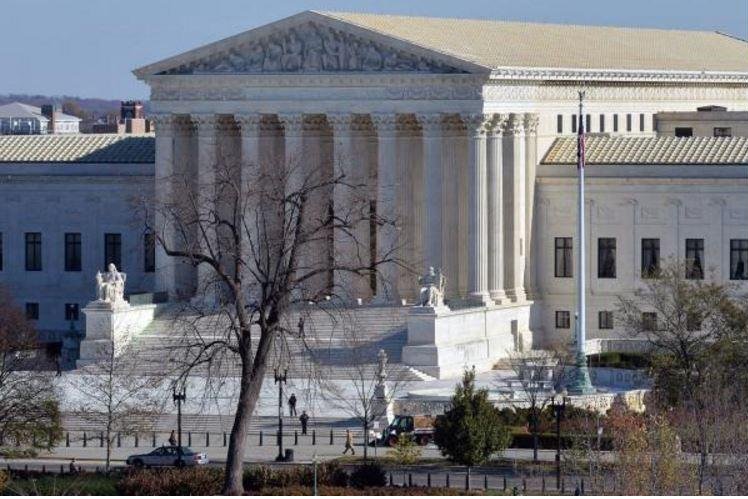In its 5-2 ruling Monday, the Supreme Court ruled that Puerto Rico can't restructure its debts, which is more than $72 billion. to avoid a financial crisis. File photo by Kevin Dietsch/UPI
WASHINGTON, June 13 (UPI) -- Puerto Rico cannot restructure its debt to stave off a financial crisis, the U.S. Supreme Court ruled Monday.
In a 5-2 ruling, the justices said the Constitution doesn't allow Puerto Rico to rewrite a statute Congress enacted in 1984.
"The plain text of the Bankruptcy Code begins and ends our analysis," Justice Clarence Thomas wrote for the majority opinion. He said "unambiguous language" of the bankruptcy code prevents Puerto Rico from writing its own laws.
The territory faces default on a portion of about $2 billion in payments due July 1. The default, the latest in a series in the past several months, would hit general obligation bonds, which usually are the safest investment.
The U.S. House passed a rescue bill last week to create an oversight board on spending plans and also restructure debt on bondholders. The measure is headed to the Senate.
In 1984, Congress altered the treatment of Puerto Rico and the District of Columbia to prevent its agencies or municipalities from using Chapter 9 of the bankruptcy code to restructure debts that cannot be repaid.
Nevertheless, Puerto Rico passed its own law in 2014 to restructure some of its $72 billion of debt, including $20 billion with public utilities. But a federal appeals court disallowed the law, saying that the legislation conflicted with federal bankruptcy law.
Commonwealth officials argued before the court that the decision put the island in a legal "no man's land" without access "to any legal mechanism to restructure" its utilities' debt.
Justice Sonia Sotomayor, who is the daughter of Puerto Rican parents, wrote the minority opinion and was joined by Justice Ruth Bader Ginsburg.
"Congress could step in to resolve Puerto Rico's crisis," she wrote. "But in the interim, the government and people of Puerto Rico should not have to wait for possible congressional action to avert the consequences of unreliable electricity, transportation and safe water -- consequences that members of the Executive and Legislature have described as a looming 'humanitarian crisis.'"
Justice Samuel A. Alito, Jr. recused himself from the case. He owns Puerto Rican bonds.
Bondholders Oppenheimer & Co. and Franklin Templeton had supported the appeals court position.















